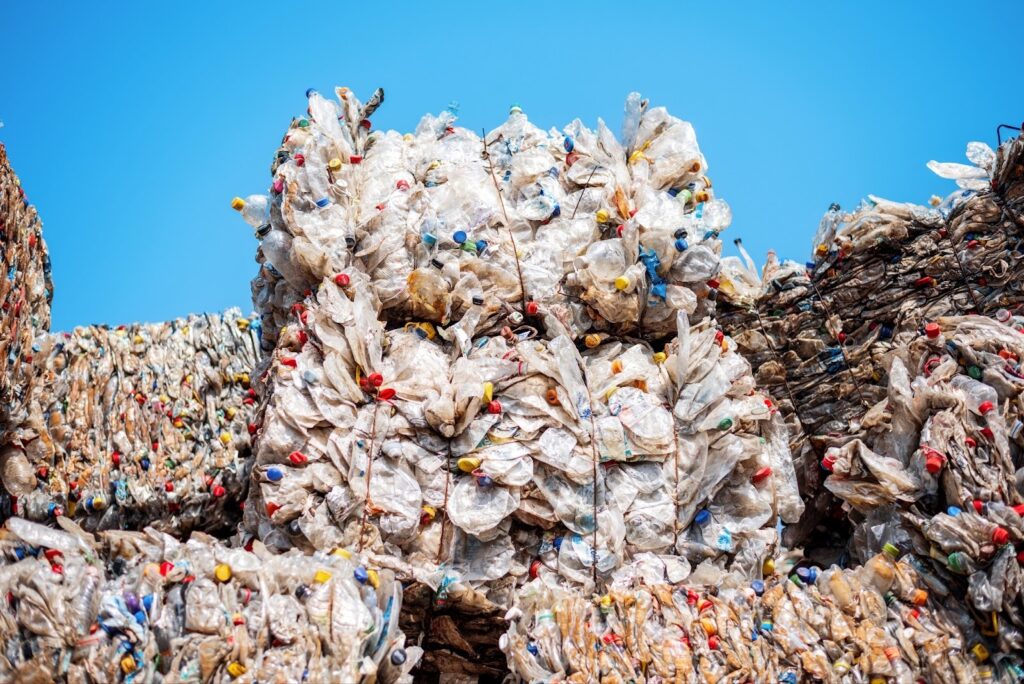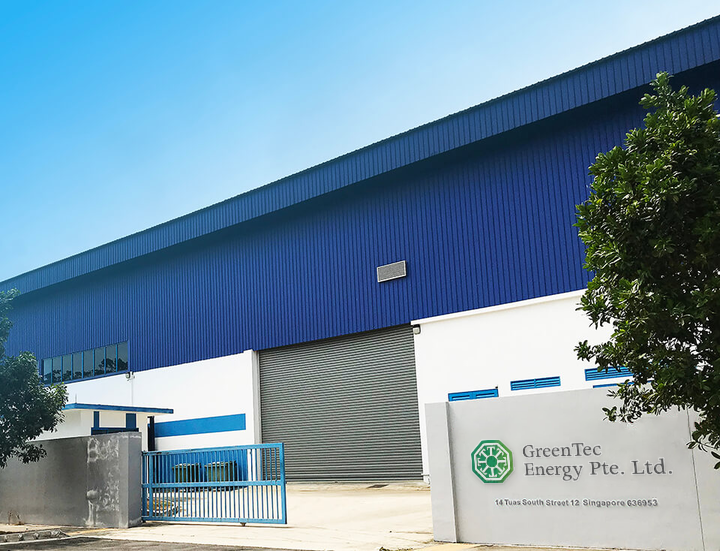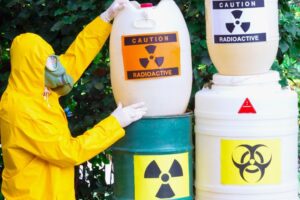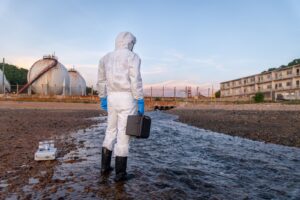Question Answered: What is Non-Hazardous Waste?
July 1, 2024

Are you familiar with non-hazardous waste? As the counterpart of hazardous waste, it's easy to assume that non-hazardous waste is less important or less impactful. Nonetheless, this type of waste still has certain management requirements.
Let’s take a closer look at what non-hazardous waste is and what you should do with it:
Non-Hazardous Waste Definition
Non-hazardous waste is a type of waste that poses no risk to humans or the environment. It is usually generated during the production of goods and services. Other than industrial processing, it can also come from households and other types of businesses.
Non-hazardous waste can come in the form of municipal solid waste, industrial waste and agricultural waste to name a few. Although these are classified as “non-hazardous”, they can still have significant impacts if not managed properly.
Environmental Impact of Non-Hazardous Waste
The impact of non-hazardous waste can be far reaching. These waste can end up in landfills and ultimately contribute to environmental degradation. They’ll release large amounts of landfill gas that consist of methane and carbon dioxide.
These greenhouse gases are some of the main contributors to climate change. Methane, in particular, has a much higher warming potential than carbon dioxide over shorter time frames. Furthermore, contaminated landfills can pose risk to groundwater quality.
This will cause leachtate to form, a substance that can infiltrate groundwater sources and contaminate drinking supplies. This in turn can cause serious societal and economic costs, including increased healthcare expenses due to waterborne illnesses.
Not to mention the costly need for groundwater remediation!
Types of Non-Hazardous waste:
Municipal Solid Waste (MSW)
Municipal solid waste, commonly known as trash or garbage, includes everyday items discarded by households and businesses.
This type of waste encompasses a variety of materials like food waste. While they are considered biodegradable, these waste can contribute to methane emissions if improperly disposed of in landfills.
Other MSW includes recyclable waste, hygiene waste and packaging waste.
Industrial Waste
Industrial waste is generated by manufacturing and industrial processes. This waste includes non-hazardous by-products such as metal, plastic and rubber scraps.
These materials, although not posing environmental or health risks, need proper disposal or recycling. Additionally, residual waste from industrial activities must be managed to ensure it does not contribute to environmental pollution.
Construction and Demolition (C&D) Debris
Construction and demolition debris is generated from construction, renovation and demolition projects. This type of waste includes concrete and asphalt, which are often recycled for new construction projects
Wood scraps, such as lumber and wooden fixtures, can sometimes be repurposed or used as biomass. Metal debris, including steel beams and copper wiring are also commonly recycled.
Other materials like drywall and plaster are usually landfilled if not recycled. This highlights the need for sustainable waste management practices in the construction industry.
Agricultural Waste
Agricultural waste is produced by farming activities. It consists of various organic and inorganic materials. Crop residues like stalks, leaves and other plant parts are significant components of agricultural waste.
Animal manure is another common agricultural waste. It is often used as fertiliser or in biogas production, providing a sustainable disposal method. Non-recyclable pesticide containers need proper disposal to avoid environmental contamination.
Medical Waste
Non-hazardous medical waste is generated by healthcare facilities and it involves several types of materials. General waste from healthcare facilities is similar to household waste. This includes packaging, food scraps and paper.
Non-hazardous pharmaceuticals, such as over-the-counter medications and non-contaminated pharmaceutical packaging, need proper disposal. Medical plastics and packaging are also recyclable if not contaminated.
Non-Hazardous Waste Management
Managing non-hazardous waste involves several practices:
Waste Segregation
Remember to segregate waste appropriately. This should be done at the source to ensure a smoother process. Segregating general waste ensures that they can be processed more efficiently.
This includes separating recyclables like paper, cardboard, plastics and metals from organic waste and non-recyclables. Ultimately, this can maintain the quality of recyclable materials and reduce contamination.
Recycling Programs
Engage actively in local recycling programs to ensure materials are properly recycled. Many municipalities provide convenient curbside pickup for recyclables or have nearby drop-off locations.
It's essential to familiarise yourself with local recycling guidelines to avoid contamination, which can render materials unrecyclable.
Composting
Embrace composting for organic waste to enrich soil and reduce landfill waste. Composting kitchen scraps, yard trimmings and other biodegradable material can reduce greenhouse gas emissions from landfills.
Additionally, this also creates nutrient-rich compost that improves soil health. Whether through backyard composting or municipal composting programs, every effort counts!
Waste Reduction
Waste reduction involves the conscious effort to make the right choices. This includes choosing products with minimal or recyclable packaging, opting for durable and reusable items or even buying products in bulk.
This can be done individually, as a community or even at the corporate level. Yes, that's right! Businesses can implement waste reduction strategies such as optimising packaging design and offering products with refillable options.
Proper Disposal
The most clear cut solution is to dispose of your waste properly. While non-hazardous waste may be “non-hazardous”, it is still classified as “waste”. And that means it requires proper disposal to prevent negative impacts.
So remember to throw your waste in designated bins according to its type. Use recycling bins for paper, plastics, glass and metal to ensure they can be repurposed. And always follow local guidelines for all waste disposal activities.
Conclusion
Albeit its namesake, non-hazardous waste must still be disposed of properly. These waste can end up in landfills and pose environmental challenges over time. Not to mention the potential risk of groundwater contamination and societal impacts.
So remember to familiarise yourself with the different types of non-hazardous waste along with the right solutions to manage them.
Need help with waste management? Contact us to find out more!
 GreenTec Energy Pte Ltd (GTE) is a waste management company located in Tuas, Singapore.
GreenTec Energy Pte Ltd (GTE) is a waste management company located in Tuas, Singapore.
Our service includes Industrial waste, Oily waste, Marine waste.
To provide a hassle free solution to our customer is always the key approach and to ensure a win-win situation towards. As a NEA approved environmental company in Singapore, we take all our services seriously and to ensure maximum safety with compliances applied. Every step of our disposal processes are also designed to meet NEA & SCDF requirements, with latest treatment facilities and laboratories to test and treat all incoming waste before disposal.
GTE operates a total land area of about 100,000sqft at 14 Tuas South Street 12 Singapore 636953. With our comprehensive logistics and transportation fleet, we provide prompt and efficient services in transportation of waste to our premises.



